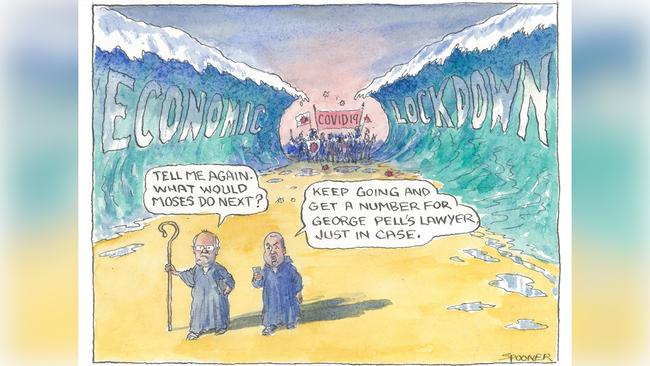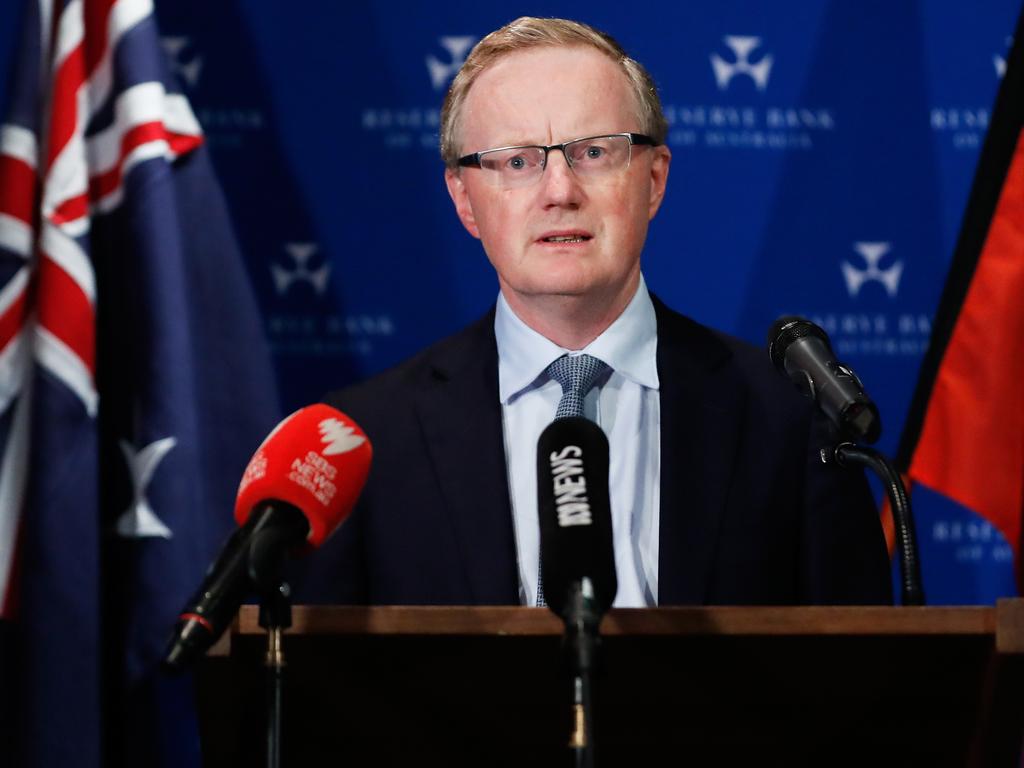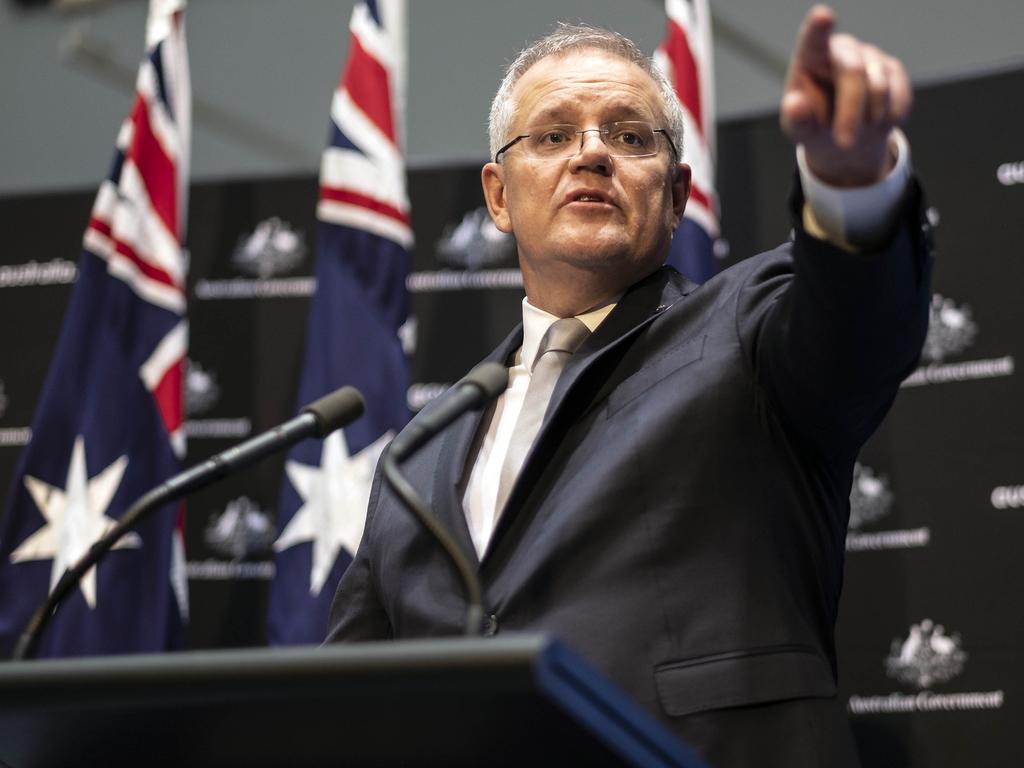
Crossing the wall is the term used for the official sounding process ahead of an equity raising — that is, the sounding which comes after the informal heads-up.
In this era of social distancing the latter is tricky because a quick coffee down the road is not on. But luckily the people on both sides of the fence know each other well.
All going well, the compliance department suitably muted, an investment banker calls the PM (portfolio manager) and asks whether they want to cross the wall on, say, a transport issue coming up. Once the paperwork is signed the banker can brief the PM and the game is on.
Back during the global financial crisis, the game resulted in Australian companies raising $98bn to recapitalise their balance sheets and investment banks pocketed $2bn in fees to compensate for the “risk” they took.
The game then was to line up some friendly PMs, start a few rumours about company X which “really needs to raise money”, watch the stock price fall further, then approach the company about a discounted rights issue, which is already effectively placed.
Then the stock price magically rises and everyone wins — except retail shareholders, who are massively diluted, and management has to justify lower returns for the next few years.
The GFC bonanza was led by UBS but so far the wall crossing dance is demonstrably being led by Macquarie.
This is a tricky time for boards of directors who are there to support all shareholders and need to stand up to self-interested bankers and fund managers.
Thanks to Canberra’s help they have already covered their backside with relief from “trading while insolvent” rules and now the test comes on whether they can stare down the investment banks wanting to help them raise sometimes expensive equity capital.
Proxy firm Ownership Matters has already stepped in to put corporate Australia on notice that capital market behaviour will be watched closed in the next governance reviews.
ASX and Cochlear chair Rick Holliday Smith will be exhibit one, explaining how he handed 34 per cent of an $880m raising to UK- based Veritas, after capping retail share at $50m on a $140 a share issue after which the stock is now trading at $183.80.
Somewhat bizarrely, Cochlear left it to yesterday to confide management and the board would take a pay cut, which perpetuated the line the company was in trouble.
The ASX has stepped in to make it easier to raise money by lifting the limits on how much equity can be raised without seeking shareholder approval. But its package was tilted to the big end of town.
The fear was money may not be easily found so there was a need in volatile equity markets to raise money quickly — that’s why shareholder friendly measures like renounceable rights issues, which allow you to sell rights, were summarily ignored.
So far raising money has not proved an issue. On present form the “wall crossed” PM will readily agree to the new shares because rights issues are money for jam at a big discount to market and at this early stage the market tends to trade up on completion.
A formal letter is sent by email, the PM agrees to the terms and then the banker briefs on the deal and asks the PM whether he or she wants to participate, and the answer is generally yes.
Normally existing shareholders are approached because at least they know the stock. And the bank also wants to keep them on- side, so it doesn’t want to dilute the PM.
Retail shareholders are a different matter because they are left on the sidelines and if they are lucky they get to pick up a few crumbs and must accept a massive dilution.
If more shares are being issued at a lower price then your earnings per share will be diluted because you get fewer earnings per share.
All this means by the time the issue is announced by the company, a day or two later the deal is effectively done and the banker picks up a 2 per cent fee for zero risk by putting his PM mates into the issue.
The fund manager wants to guard against dilution and when the PM is known as a good commission payer then it’s more often than not that the allocation is generous.
All of this happens behind closed doors and no one really sees what is happening, although the ACCC is trying to open up a Pandora’s box with an alleged cartel case against the bankers in the failed ANZ issue in 2015.
The company is happy if the book is filled because then it can get on with business.
The expectation this time around is that there will be a rush of companies with their hands out early because they really need the money — like Flight Centre, Oil Search et al.
And the next round will come when, hopefully, business gets back to normal and the banks start suggesting the companies get their balance sheet in order.
The trading banks, it should be noted, have played the crisis to perfection, suspending payment terms on small business loans and mortgages, but in reality they are just suspending terms, with the length of the loan extended by three to six months.
The bank is still booking your revenue and will get their full allotment; it’s just they are being flexible.
Given the economy is already in the red and will move much deeper as the crisis rolls on, the banks will struggle with less demand and more bad debts.
That’s when the insolvency gurus come in with Houlihan “aka houligans” Lokey advising Virgin.
The dream scenario at Virgin would be a Singapore Airline buyout, which would win full political backing in Australia.
If not then a so-called “solvent scheme of arrangement” under section 411 (16) may be needed to sort out how to sort through its $5bn in debt.
No one is suggesting Virgin is insolvent — just that a scheme may be the best way through.
While these issues are worked through the wall crossing game is happily progressing.
Fair entitlement
The federal government is still focused heavily on the crisis with new measures like the landlord rental scheme for small companies unveiled yesterday.
The messaging is important because Canberra doesn’t want to go close to signalling “game over” by looking at issues on the other side of the wall. That is being handled by Nev Power’s committee but Canberra is through the options.
As previously noted one proposal before Treasurer Josh Frydenberg is to extend the fair entitlement guarantee to companies in voluntary administration.
The FEG was introduced by John Howard back in 2014 on the urging of his brother Stan to help pay the wages of workers whose company collapses.
Frydenberg is also expected shortly to detail a revised schedule for implementation of his rollout of the banking royal commission recommendations which have been stuck due to the virus and urgent economy saving measures.







Anyone for a wall cross? It’s the $5bn game being played out in financial markets as investment banks and fund managers square off on new equity raisings.